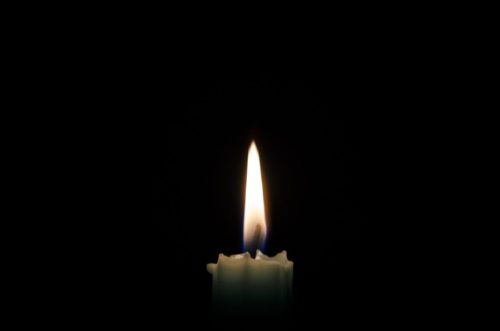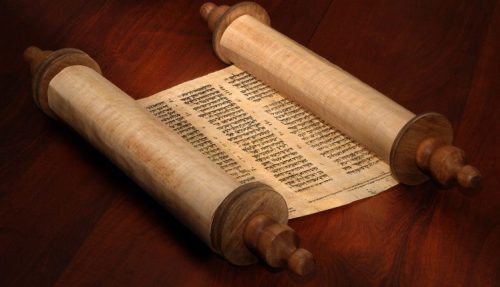
The deception has taken place. Joseph has been sold into slavery. His brothers dipped his coat in blood. They bring it back to their father, saying: “Look what we have found. Do you recognise it? Is this your son’s robe or not?” Jacob recognises it and replies, “It is my son’s robe. A wild beast has devoured him. Joseph has been torn to pieces.” We then read:
Jacob rent his clothes, put on sackcloth, and mourned his son for a long time. His sons and daughters tried to comfort him, but he refused to be comforted. He said, “I will go down to the grave mourning for my son.” (Gen. 37:34–35)
There are laws in Judaism about the limits of grief – shiva, sheloshim, a year. There is no such thing as a bereavement for which grief is endless. The Talmud says that God admonishes one who weeps beyond the appointed time, “You are not more compassionate than I.”1 And yet Jacob refuses to be comforted.
A Midrash gives a remarkable explanation. “One can be comforted for one who is dead, but not for one who is still living,” it says. In other words, Jacob refused to be comforted because he had not yet given up hope that Joseph was still alive. That, tragically, is the fate of those who have lost members of their family (the parents of soldiers missing in action, for example), but have as yet no proof that they are dead. They cannot go through the normal stages of mourning because they cannot abandon the possibility that the missing person is still capable of being rescued. Their continuing anguish is a form of loyalty; to give up, to mourn, to be reconciled to loss is a kind of betrayal. In such cases, grief lacks closure. To refuse to be comforted is to refuse to give up hope.
Yet on what basis did Jacob continue to hope? Surely he had recognised Joseph’s blood-stained coat – he said explicitly, “A wild beast has devoured him. Joseph has been torn to pieces.” Do these words not mean that he had accepted that Joseph was dead?
The late David Daube made a suggestion that I find convincing.2 The words the sons say to Jacob – haker na, literally “identify please” – have a quasi-legal connotation. Daube relates this passage to another, with which it has close linguistic parallels:
If a man gives a donkey, an ox, a sheep or any other animal to his neighbour for safekeeping and it dies or is injured or is taken away while no one is looking, the issue between them will be settled by the taking of an oath before the Lord that the neighbour did not lay hands on the other person’s property…If it [the animal] was torn to pieces by a wild animal, he shall bring the remains as evidence and he will not be required to pay for the torn animal. (Exodus 22:10–13)
The issue at stake is the extent of responsibility borne by a guardian (shomer). If the animal is lost through negligence, the guardian is at fault and must make good the loss. If there is no negligence, merely force majeure, an unavoidable, unforeseeable accident, the guardian is exempt from blame. One such case is where the loss has been caused by a wild animal. The wording in the law – tarof yitaref, “torn to pieces” – exactly parallels Jacob’s judgment in the case of Joseph: tarof toraf Yosef, “Joseph has been torn to pieces.”
We know that some such law existed prior to the giving of the Torah. Jacob himself says to Laban, whose flocks and herds had been placed in his charge, “I did not bring you animals torn by wild beasts; I bore the loss myself ” (Gen. 31:39). This implies that guardians even then were exempt from responsibility for the damage caused by wild animals. We also know that an elder brother carried a similar responsibility for the fate of a younger brother placed in his charge, as, for example, when the two were alone together. That is the significance of Cain’s denial when confronted by God as to the fate of Abel: “Am I my brother’s guardian [shomer]?” (Gen. 4:9).
We now understand a series of nuances in the encounter between Jacob and his sons upon their return without Joseph. Normally they would be held responsible for their younger brother’s disappearance. To avoid this, as in the case of later biblical law, they “bring the remains as evidence.” If those remains show signs of an attack by a wild animal, they must – by virtue of the law then operative – be held innocent. Their request to Jacob, haker na, must be construed as a legal request, meaning, “Examine the evidence.” Jacob has no alternative but to do so, and by virtue of what he has seen, to acquit them. A judge, however, may be forced to acquit someone accused of a crime because the evidence is insufficient to justify a conviction, while still retaining lingering private doubts. So Jacob was forced to find his sons innocent, without necessarily trusting what they said. In fact Jacob did not believe it, and his refusal to be comforted shows that he was unconvinced. He continued to hope that Joseph was still alive. That hope was eventually justified: Joseph was still alive, and father and son were ultimately reunited.
The refusal to be comforted sounded more than once in Jewish history. The prophet Jeremiah heard it in a later age:
This is what the Lord says:
“A voice is heard in Ramah,
Mourning and great weeping,
Rachel weeping for her children
Refusing to be comforted,
Because her children are no more.”
This is what the Lord says:
“Restrain your voice from weeping,
And your eyes from tears,
For your work will be rewarded,” says the Lord.
“They will return from the land of the enemy.
So there is hope for your future,” declares the Lord,
“Your children will return to their own land.”
Why was Jeremiah sure that Jews would return? Because they refused to be comforted – meaning, they refused to give up hope.
So it was during the Babylonian exile, as articulated in one of the most paradigmatic expressions of the refusal to be comforted:
By the rivers of Babylon we sat and wept,
As we remembered Zion…
How can we sing the songs of the Lord in a strange land?
If I forget you, O Jerusalem,
May my right hand forget [its skill],
May my tongue cling to the roof of my mouth
If I do not remember you,
If I do not consider Jerusalem above my highest joy.
It is said that Napoleon, passing a synagogue on the fast day of Tisha B’Av, heard the sounds of lamentation. “What are the Jews crying for?” he asked one of his officers. “For Jerusalem,” the soldier replied. “How long ago did they lose it?” “More than 1,700 hundred years.” “A people who can mourn for Jerusalem so long, will one day have it restored to them,” the Emperor is reputed to have replied.
Jews are the people who refused to be comforted because they never gave up hope. Jacob did eventually see Joseph again. Rachel’s children did return to the land. Jerusalem is once again the Jewish home. All the evidence may suggest otherwise: it may seem to signify irretrievable loss, a decree of history that cannot be overturned, a fate that must be accepted. Jews never believed the evidence because they had something else to set against it – a faith, a trust, an unbreakable hope that proved stronger than historical inevitability. It is not too much to say that Jewish survival was sustained in that hope. And that hope came from a simple – or perhaps not so simple – phrase in the life of Jacob. He refused to be comforted. And so – while we live in a world still scarred by violence, poverty and injustice – must we.
Shabbat shalom


1] Mo’ed Katan 27b.
2] David Daube, Studies in Biblical Law (Cambridge: University Press, 1947).


An international religious leader, philosopher, award-winning author and respected moral voice, Rabbi Lord Jonathan Sacks was awarded the 2016 Templeton Prize in recognition of his “exceptional contributions to affirming life’s spiritual dimension.” Described by H.R.H. The Prince of Wales as “a light unto this nation” and by former British Prime Minister Tony Blair as “an intellectual giant”, Rabbi Sacks is a frequent and sought-after contributor to radio, television and the press both in Britain and around the world.
Since stepping down as the Chief Rabbi of the United Hebrew Congregations of the Commonwealth – a position he served for 22 years between 1991 and 2013 – Rabbi Sacks has held a number of professorships at several academic institutions including Yeshiva University and King’s College London. In addition to his writing and lecturing, he currently serves as the Ingeborg and Ira Rennert Global Distinguished Professor at New York University. Rabbi Sacks has been awarded 17 honorary doctorates including a Doctor of Divinity conferred to mark his first ten years in office as Chief Rabbi, by the then Archbishop of Canterbury, Lord Carey.
Rabbi Sacks is the author of over 30 books. Among them, Rabbi Sacks has published a new English translation and commentary for the Koren Sacks Siddur, the first new Orthodox siddur in a generation, as well as powerful commentaries for the Rosh HaShana, Yom Kippur, Pesach, Shavuot and Sukkot Machzorim. His most recent work, Not in God’s Name: Confronting Religious Violence was awarded a 2015 National Jewish Book Award in America and was a top ten Sunday Times bestseller in the UK. Past works include: The Great Partnership: God, Science and the Search for Meaning; The Dignity of Difference: How to Avoid the Clash of Civilizations, winner of the Grawemeyer Prize for Religion in 2004 for its success in defining a framework for interfaith dialogue between people of all faith and of none; To Heal a Fractured World: The Ethics of Responsibility; and A Letter in the Scroll: On Being Jewish, winner of a National Jewish Book Awards in 2000. His Covenant & Conversationcommentaries on the weekly Torah portion are read in Jewish communities around the world.
In recognition of his work, Rabbi Sacks has received, among others, the Jerusalem Prize in 1995 for his contribution to diaspora Jewish life, The Ladislaus Laszt Ecumenical and Social Concern Award from Ben Gurion University in Israel in 2011, The Guardian of Zion Award from the Ingeborg Rennert Center for Jerusalem Studies at Bar-Ilan University in 2014, and The Katz Award in recognition of his contribution to the practical analysis and application of Halakha in modern life in Israel in 2014. He was named as The Becket Fund’s 2014 Canterbury Medalist for his role in the defence of religious liberty in the public square; won a Bradley Prize in 2016 in recognition of being “a leading moral voice in today’s world”; and in 2017, he was awarded the Irving Kristol Award from the American Enterprise Institute for his “remarkable contributions to philosophy, religion, and interfaith discourse… as one of the world’s greatest living public intellectuals.” In 2018, he was given the Lifetime Achievement Award by The London Jewish News in recognition of his services to the Jewish world and wider society.
Rabbi Sacks was knighted by Her Majesty The Queen in 2005 and made a Life Peer, taking his seat in the House of Lords in October 2009. Born in 1948 in London, he has been married to Elaine since 1970. They have three children and several grandchildren.





